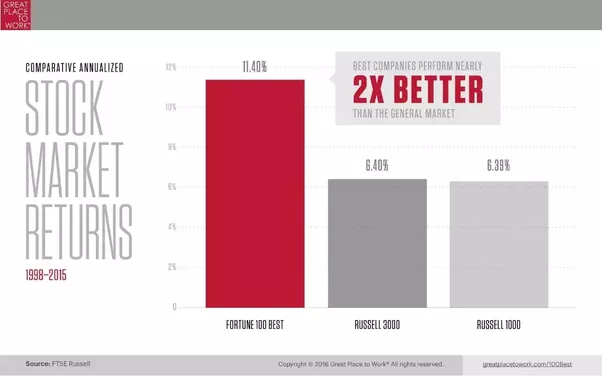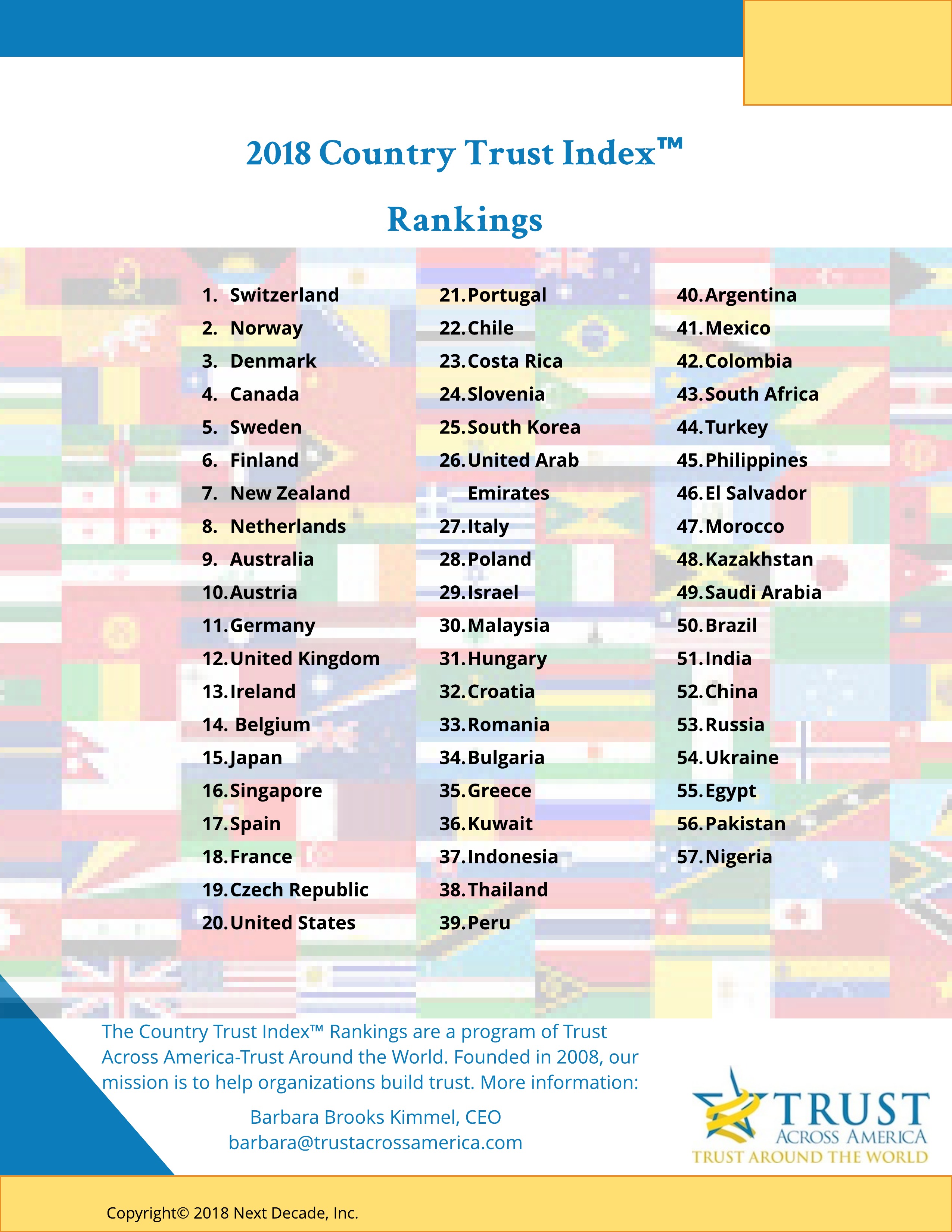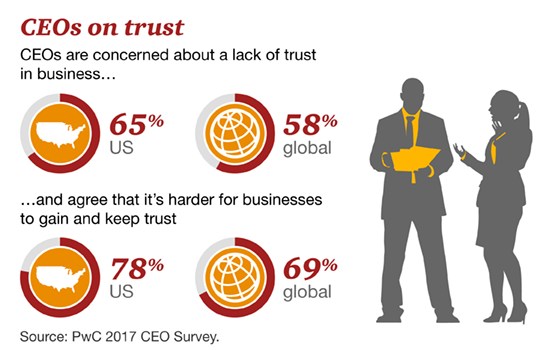 The following information can be found in the first ten pages of our new 46-page report “Trust & Integrity in Corporate America.” It is the culmination of ten years of research on the impact of trust on business success.
The following information can be found in the first ten pages of our new 46-page report “Trust & Integrity in Corporate America.” It is the culmination of ten years of research on the impact of trust on business success.
The common assumption is high integrity and trust simply “exist” at the individual, team and organizational level, yet dozens of surveys and studies show otherwise.
- MIT concludes that leadership trustworthiness produces better results than competence.
- A Deloitte study found that only 42% of CEOs and 50% of board members have discussed risks to their organization’s reputations in the past year. Also, 53% of CEOs and 46% of board members can’t identify events that can damage their organization’s reputation.
- Gallup reports that only 46 percent of disengaged employees trust management.
- Ernst & Young surveyed 10,000 workers ages 19 to 68 in eight countries revealed that just 46% of employees placed “a great deal of trust” in their employer, and only 49% placed “a great deal of trust” in their manager or colleagues.
These and dozens of other studies, graphs, data, statistics and tools to elevate trust at the individual, team and leadership levels are included in this report.
Early reviews have been outstanding:
- Business leaders and their advisors
- Boards of Directors
- Industry Associations
- Academics
- Media
- Investors and activists
- ESG professionals
- Communications and Investor Relations professionals
- Corporate responsibility officers
- Regulators and Policy Makers
- Ethics, Compliance and Human Resource officers
- NGO professionals
Trustworthy leaders build trustworthy organizations. Talking about trust without learning what trust means or how to strategically implement organizational trust-building strategies, places companies not only at a strategic disadvantage, but increases both short and long-term enterprise risk. Building a trustworthy organization goes way beyond philanthropy or CEOs “taking stands.”
Trust is an intentional top-down strategy, built from the inside out, and practiced and reinforced daily. Share on XAccess to the report can be found on our homepage at www.trustacrossamerica.com
Barbara Brooks Kimmel is an award-winning communications executive and the CEO and Cofounder of Trust Across America-Trust Around the World whose mission is to help organizations build trust. A former consultant to McKinsey and many Fortune 500 CEOs and their firms, Barbara also runs the world’s largest global Trust Alliance, and is the editor of the award-winning TRUST INC. book series and TRUST! Magazine. In 2012 she was named one of “25 Women who are Changing the World” by Good Business International, and in 2017 she became a Fellow of the Governance & Accountability Institute. Barbara holds a BA in International Affairs and an MBA. Don’t forget to TAP into Trust!
For more information contact barbara@trustacrossamerica.com
Copyright (c) 2018, Next Decade, Inc. All rights reserved.



Recent Comments